Food Storage
Are You Prepared For A Famine In The US?
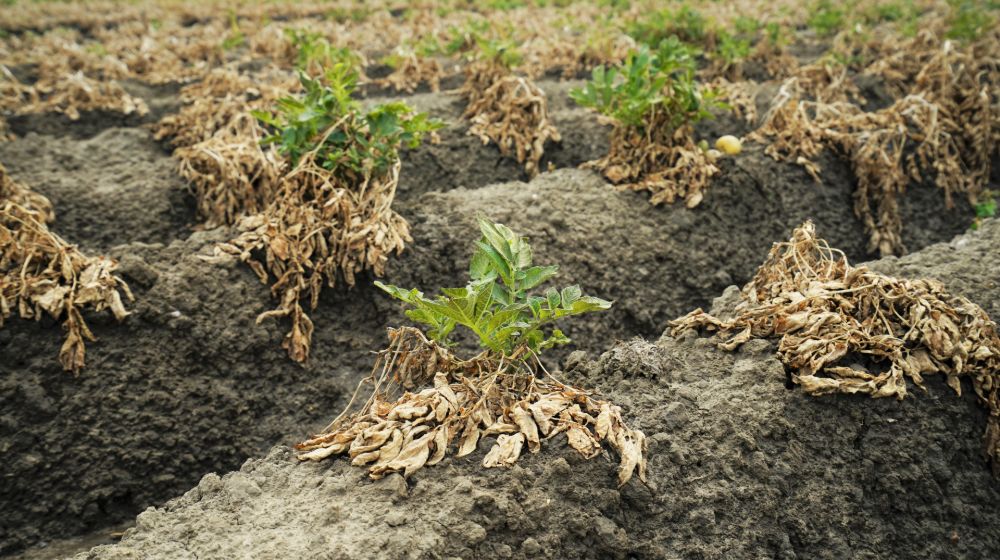
Survival Life is reader-supported. When you buy through links on our site, we may earn an affiliate commission.
The United States may be one of the most powerful countries in the world today, but this does not mean that they are immune to Mother Nature’s wrath.
When it comes to natural disasters, a famine can be one of the worst. Here’s how you can prepare for a famine in the US.
RELATED: Survival Food Storage | 4 Methods of Maintaining A Solid Food Supply
Famine In The US | 9 Steps to Prepare for a Major Food Crisis in the Country
1. Know All There Is to Know About a Famine
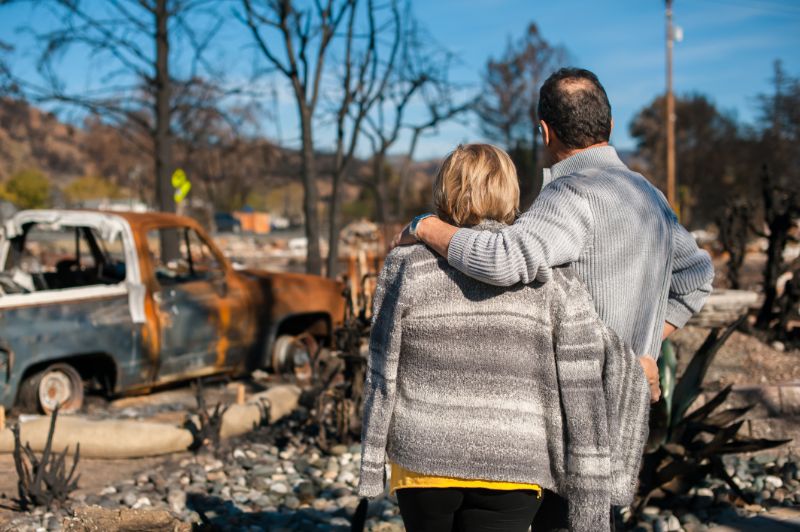
When it comes to surviving natural disasters, preparation is key. Start by learning everything there is to know about famines that have happened before in other countries.
Additionally, learn about its most common causes. This will help you predict when the same might soon happen in your country or local area. Find out if there are any specific geographical locations or conditions that make certain places more prone to these kinds of disasters.
Is your area prone to floods, tornadoes, landslides, drought, earthquakes? Customize your preparation plans for those which your location is more prone to. It’s best to be prepared for the emergency that is more likely to affect your family.
2. Prioritize Water

Water should be your number one priority when you start stockpiling for any kind of disaster. During a famine, this valuable resource may also be hard to find. Additionally, depending on the calamity that caused the famine, most water sources may also be contaminated.
When preparing your stockpile, make sure to prioritize water. Save up at least a gallon of water per person per day. Make sure that your supplies would last for at least three days so you’re prepared for the immediate effects of the disaster.
Most disaster preparedness programs also recommend buying commercially available and sealed water from your local grocery. If you are on a budget, however, you can also use water gallons or barrels to collect rainwater or even just tap water for future use.
Finally, it will not hurt to equip yourself with a water filtration system similar to those used in camping. In case your water supply is depleted, this is a good way to ensure that you can collect water from natural sources and make sure that they are safe to drink.
3. Stockpile Food
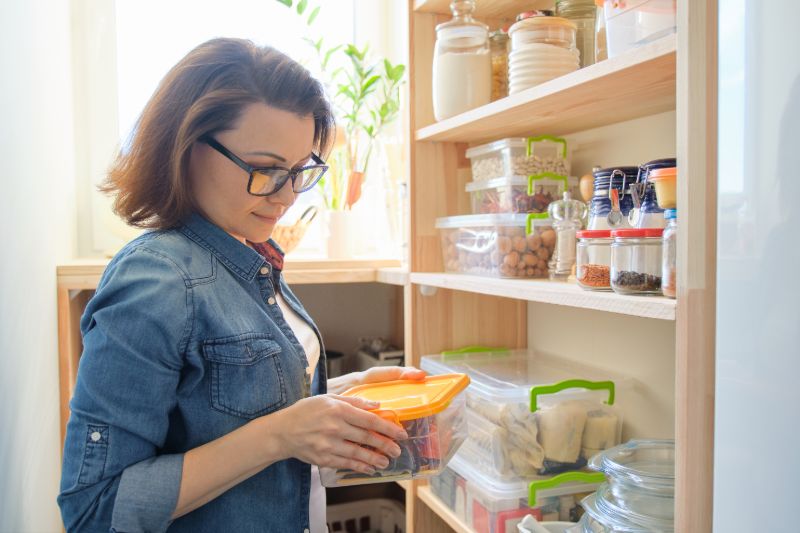
First and foremost, make sure to select foods that have a long shelf life. Once your water supply is ready, this should be your next priority when it comes to preparing for a famine in the US.
Similar with water, stockpile a minimum of 3 days worth of food and supplies. This should be enough time for first responders to reach you.
If you are on a limited budget, you can start gradually from 3 days worth of supplies and work your way up to a minimum of 2 weeks. You can also choose to stock canned goods or even bottle and preserve your own. There are also pre-made emergency food supplies that you can buy.
Make sure to regularly check on the food you have stored. If they are already nearing their expiry, rotate them out, use them in your kitchen, and replace them as needed.
4. Try Gardening
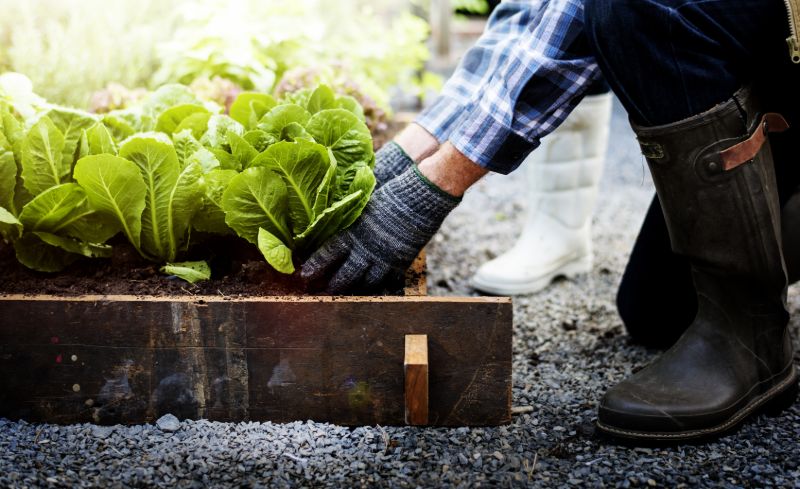
This is for the long-term. In case a short-term food shortage does turn into a long-term famine, it is best to be prepared and know that you have the ability to grow your own food.
No, you don’t have to own a huge plot of land to start this. In fact, even those living in apartments can use plastic bottles to do vertical gardening.
To successfully grow your own garden, make sure to consider the location. Keep in mind that it has to have plenty of sun and access to water sources.
Your soil should also be conditioned for gardening, so make sure to buy compost and fertilizers in advance. Try to get rid of weeds as well as they tend to suck the nutrients from the soil.
Once your crops are ready, keep in mind that they have to be stored in places and conditions that will not make them rot too quickly.
RELATED: Drought Survival: How To Survive Natural Disasters
5. Stay Updated about Relief Aids
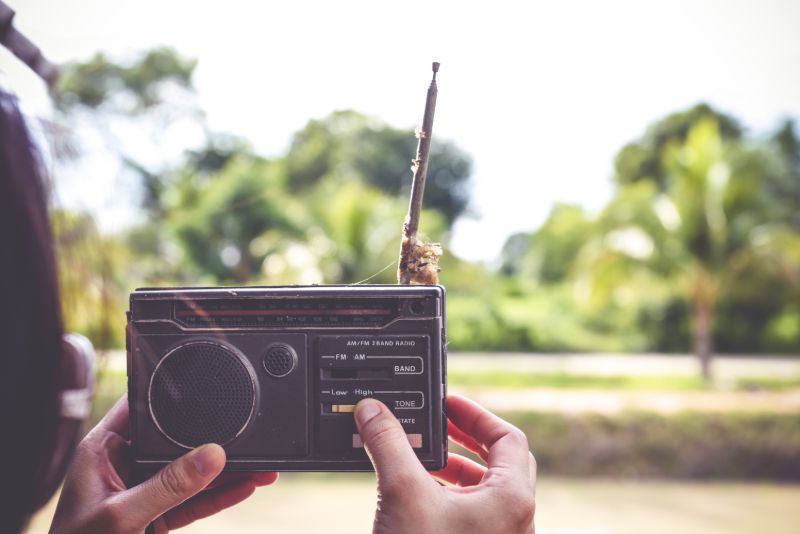
Governments and private organizations will most likely hand out food supply aids to the affected. Equip yourself with a radio so you’re updated on when these might come out. More importantly, keep your ears sharp about emergency medical aid should it be needed by members of your family.
6. Be Discreet

Prolonged effects of natural disasters can bring out the worst in even the nicest people. When the community starts feeling the pain caused by a famine, they will start looking for other sources of their necessities.
Be discreet about what you have. Disclose it only on a need-to-know basis. When this does happen, you do not want others who are less prepared to take from you what you worked hard to build.
7. Study

In cases like these, knowledge is power. Make sure to learn as much as you can about survival and the different skills that it takes to survive a natural disaster. It wouldn’t hurt to learn how to start a fire, how to preserve your own food, how to keep yourself warm, and many more.
This kind of knowledge will save lives in case of a disaster. Plus, if that disaster doesn’t come (and we certainly hope that it doesn’t), you can still use them when you go out camping.
8. Prepare Your Emergency Shelter

Organize your bug out location and make sure that it is fully-equipped with all your family’s needs. In case of emergencies like these, it is best also to make sure that they are as comfortable as possible to help keep morale high.
More importantly, your food should be stored in this same location. Make sure that your food storage area is neat, dry, and kept far away from insects and rodents. Keep in mind that it has to be well-ventilated as well so moisture does not condense on food surfaces.
9. Put Together a Complete Emergency Kit
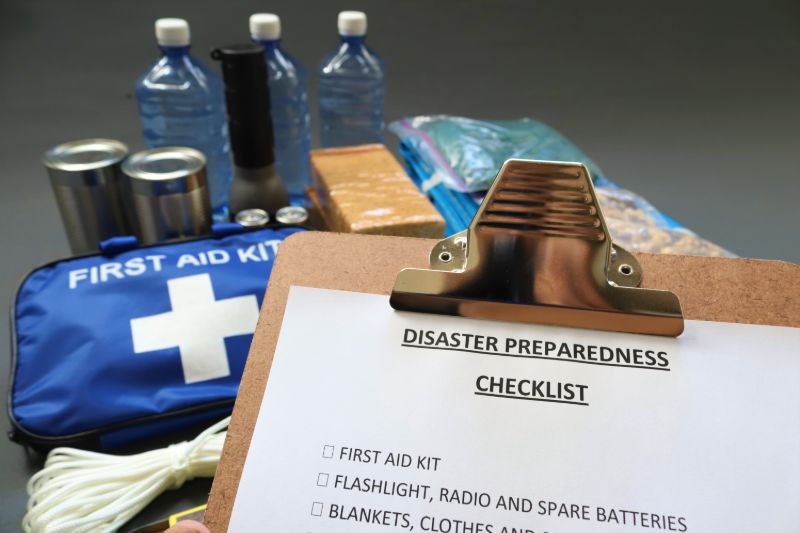
In case of any disaster, it is important to have your own emergency kit that is fully-equipped with some of the most basic necessities for survival. Once your food and water supply are secured and stable, this is the next most important thing for you to prepare.
Start by preparing a list of the things that are most important to you. Your kit should include at least a first aid kit, your family’s special medication and other over the counter drugs, some matches, flint and steel, shelter or a tent, and maybe some blankets.
Once you have these, add in other necessities you might have like toilet paper, utensils, bug spray, a gas stove, and many more. Make sure to prepare a checklist before you start so you can cross items off as you acquire and store them.
The pandemic has wreaked unforeseen havoc in many aspects of people’s lives all over the world. Learn about the risk of famine in the US with this video courtesy of Bloomberg Quicktake:
The US may be a powerful country, but it does not mean that it is immune to natural disasters. Make sure you are well-equipped and prepared for a famine in the US by following the tips listed above.
[poll id=”84″]
Do you have other questions about the imminent risk of famine in the US? Ask them in the comments section below!
Up Next:
- Top 10 Survival Foods That You Can Get On Your Next Grocery Trip
- Emergency Food Storage In Small Spaces
- Climate Change You Need To Worry About [LISTEN]
Calling all preppers, craftsmen, bushmasters, outdoorsmen, and all-around skilled people, Survival Life needs YOU! Click here if you want to write for us.
Don’t forget to stay connected with us on Facebook, Twitter, Pinterest, and Instagram!
-

 Do It Yourself7 months ago
Do It Yourself7 months agoParacord Projects | 36 Cool Paracord Ideas For Your Paracord Survival Projects
-

 Do It Yourself10 months ago
Do It Yourself10 months agoHow To Make Paracord Survival Bracelets | DIY Survival Prepping
-

 Do It Yourself9 months ago
Do It Yourself9 months ago21 Home Remedies For Toothache Pain Relief
-

 Do It Yourself10 months ago
Do It Yourself10 months agoSurvival DIY: How To Melt Aluminum Cans For Casting
-

 Exports8 months ago
Exports8 months agoAre Switchblades Legal? Knife Laws By State

